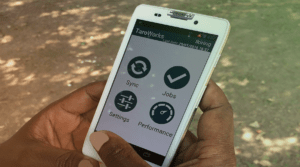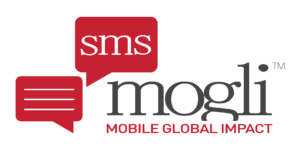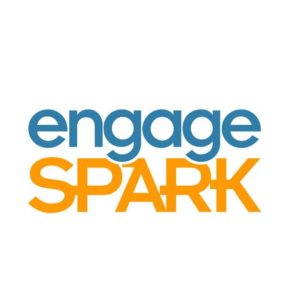
Search
The use of mobile and cloud-based tools as farming apps and other AgTech available to improve farm yields and farmer income continues to proliferate as entrepreneurs come to realize there’s a business opportunity in helping smallholder farmers succeed.
However, as our experts discussed in our recent webinar on The Future of ICT4Ag, solutions are moving in the direction of strategic partnerships and combining the power of multiple apps into one holistic system. Since agriculture issues are so multi-faceted, the trend is moving toward combining tools that will address different parts of those issues. As we look forward to where ICT4Ag is heading, we wanted to highlight some of our favorite tools that can be used as farming apps, as you think about your AgTech stack.
As an organization working in the agricultural value chain, you probably have many business requirements since there can be such different types of transactions that need to be conducted or tracked – including everything from logging a delivery to compensating a farmer for their harvest.

From TaroWorks’ experience working with agriculture organizations to provide an offline mobile farmer relationship management tool, we’ve identified a few types of requirements that appear consistently:
There are 2 options to get this combination of functions. First is to hire a developer to build a mobile and online business operations system from scratch so you get a completely customized design . Unfortunately, this often takes a long time and can be very costly – not to mention that there will be ongoing costs as the system needs to get updated and new features included. The second option is to create (or work with partners to create) a system stack, or a combination of multiple commercial off-the-shelf software and hardware products that each bring specific functionality in one system. The benefits of creating an agriculture stack are that it allows you to mix and match tools based on needs and places the responsibility for updating and enhancing software with the vendor.
As a commercial off-the-shelf software as a service product (SaaS) product which runs on the Salesforce.com CRM platform, TaroWorks is sometimes used as a standalone mobile and cloud-based application for very specific tasks like tracking attendance or logging sales. But in other cases , we’re also used as part of an agriculture stack by organizations who need a more holistic system that can do many different functions and work with multiple types of stakeholders. We’re obviously biased when it comes to TaroWorks, but we wanted to highlight 4 additional tools you can use as farming apps to round out your system.
TaroWorks is built for field agents, like extension workers, who are facilitating an interaction with a farmer or someone else in the value chain. However, there are frequent cases where an organization needs to communicate directly with the farmers, so it’s necessary for information to be sent directly to the end-user’s phone.

Mogli SMS is an SMS content management system that can be critical when you need to blast messages directly to farmers’ phones, whether a mass blast announcement or customized messages for each recipient. Mogli does both and also allows for surveys with skip logic, so you can create your question flow to be dependent on previous responses.
There are certain things to keep in mind when using SMS surveys, most importantly user attention spans and their willingness to provide answers over a phone. Another way to use Mogli is to set up a short code so users can initiate contact with the organization by texting the short code number. This is especially helpful if you don’t want to send agents into the field before you know if there’s anything on which to check. engageSPARK
engageSPARK
engageSPARK is an interactive voice response (IVR) tool, which gives voice prompts and captures answers when the respondent presses their number response from the number pad. When farmers rely on SMS, they incur a cost to send the messages, while it doesn’t cost them anything to receive a phone call and respond by IVR. Finally, IVR is especially useful when the end-users cannot read or write.
Direct-to-end user channels like engageSpark and Mogli, require that the farmers have their own phones but they don’t need to have a fancy phone. Mogli is integrated directly with Salesforce.com, as is TaroWorks. engageSPARK has its own cloud-based backend or can be integrated with Salesforce using Zapier.

aWhere provides a data feed of location-specific weather and related crop-specific commercial impacts, based on 6 billion data points collected each day. For organizations who want to provide very tailored information to farmers so they can take corrective actions or adjust their activities based on time sensitive information, aWhere’s data is critical.
It’s helpful to consider the farmer’s capacity to digest the raw data when you decide what channel is best for sharing the information – whether it’s an expert at HQ to turn the data into actionable messages that can then be blasted out directly to farmers (using one of the apps above) or it’s information shared with extension workers who have the capacity to translate the data into actions during their next interaction. aWhere data feeds can be integrated into an existing app through their API.

Beyonic is a mobile money payment system for managing payments between an organization and individuals. Inherent to being part of a value chain, agriculture organizations are likely required to make payments and/or collect money. Beyonic is one of the tools that can be used as a farming app by digitizing payment workflows and allowing organizations to schedule customized payments to individuals using mobile money in East Africa. Their app has helped their agriculture clients pay farmers and collect funds from farmers, pay for produce through agents, depositing funds into savings accounts and disbursing loans to farmers. Beyonic has its own cloud-based backend.

If you’re interested in one of the four tools usable as farming apps, which we’ve highlighted above, or have your own favorite farming apps but are concerned that they don’t link directly to your preferred back-end system, our last recommendation is to consider adding OpenFn. This tool is actually a connector that enables you to link systems and apps that normally speak different languages.
As ICT4Ag advances, there will be more of a need for an integrated system that allows for many communications channels, functions, and stakeholder involvement. Not all apps are going to work with your chosen backend system, so OpenFn provides the flexibility to link many systems together. Keep in mind that this will likely involve extra configuration time and may require technical staff on your end to make any changes to the connector configurations.
This is an exciting time for ICT4Ag because there are so many great tools that are maturing. We’re looking forward to seeing how they can all work together to help that smallholder farmer and therefore the whole value chain. If you’d like to discuss options for how you might stack different solutions, reach out to a TaroWorks representative at hello@taroworks.org.
Many TaroWorks customers previously used paper and spreadsheets to collect data, analyze metrics and run field operations. Let us show you how TaroWorks’ offline mobile field service app can help scale your business by digitizing sales and supply chain management, increasing agent network productivity and analyzing data in real-time for business insights.
POST TOPICS
Sign up to receive emails with TaroWorks news, industry trends and best practices.
TaroWorks, a Grameen Foundation company.
Site by V+V